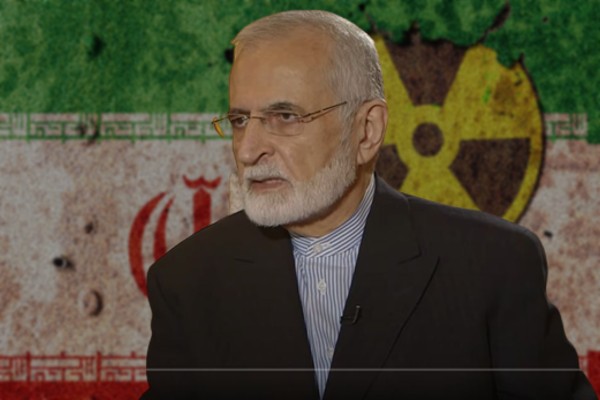Tehran just contradicted its longstanding claim that its nuclear program is for peaceful purposes.
By Pesach Benson, United with Israel
A top advisor to Iran’s Supreme Leader Ayatollah Ali Khameinei confirmed that Tehran is now capable of manufacturing a nuclear weapon.
Interviewed on Al Jazeera‘s Arabic channel on Sunday, Kamal Kharazi said, “It is no secret that we have the technical capabilities to manufacture a nuclear bomb, but we have no decision to do so.”
Karazi, who heads Iran’s Strategic Council on Foreign Relations, added, “In a few days, we were able to enrich uranium up to 60 percent, and we can easily produce 90% enriched uranium.”
Iran’s uranium stocks are at 60% purity — far higher than the 3.67% necessary for a civilian nuclear program. A nuclear weapon requires uranium enriched to 90% purity. It’s widely believed that Iran could finish enriching enough uranium to produce an atomic bomb in about four weeks.
No country maintaining a purely civilian nuclear program has ever enriched uranium to the degree that Iran has. Until now, Tehran insisted its nuclear program was for peaceful purposes.
Karazi’s made his comments immediately after U.S. President Joe Biden’s visit to the Mideast, where Israel, several Arab states and the U.S. moved closer, to the displeasure of Iran.
During the trip, Biden reportedly discussed the creation of a regional air defense network –including Israel — against Iranian missiles and drones. Saudi Arabia also opened its airspace to commercial flights to and from Israel.
In addition, Biden and Israeli Prime Minister Yair Lapid also signed the Jerusalem Declaration, a document outlining the direction of U.S.-Israeli ties. The declaration commits the U.S. and Israel “use all elements of national power” to prevent Tehran from developing a nuclear weapon.
Kharazi vowed Iran would respond to any attacks “targeting [Iran’s] security from neighboring countries,” which he said would be met with a response…and a direct response to Israel.”
Meanwhile, efforts to revive the controversial Joint Comprehensive Plan of Action (JCPOA) agreement remain stuck as the Biden administration continues to refuse Tehran’s demand to remove the Islamic Revolutionary Guards Corps from the State Department’s Foreign Terrorist Organization list.
Iranian and American officials last met with European mediators in Qatar at the end of June to get the nuclear talks back on track, but those efforts were fruitless.
The JCPOA of 2015 promised Iran economic incentives in exchange for limits on its nuclear program. Former president Donald Trump withdrew the U.S. from the agreement in 2018. Negotiating a return to the nuclear agreement has long been one of Biden’s key foreign policy goals.
Israel also fears that a premature lifting of sanctions will enable Tehran to boost its support for terror proxies across the Middle East. Removing sanctions would give Tehran access to around $100 billion in frozen assets.
Lifting of sanctions would also give Iran fresh revenue from oil sales. Estimates made before Russia invaded Ukraine indicated that Iran would make at least $55 billion from selling oil. That profit would be higher with higher energy prices soaring due to the war and other events.
Israel, in addition to Saudi Arabia and the other Gulf states, have opposed an American return to the JCPOA agreement.
Kharazi blamed the U.S. for the disintegration of the JCPOA, saying Washington can’t be trusted to walk out on the agreement again.
